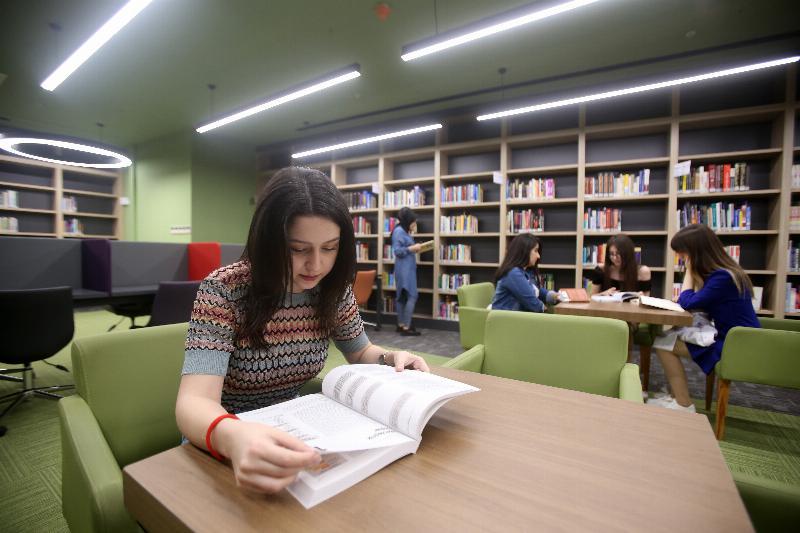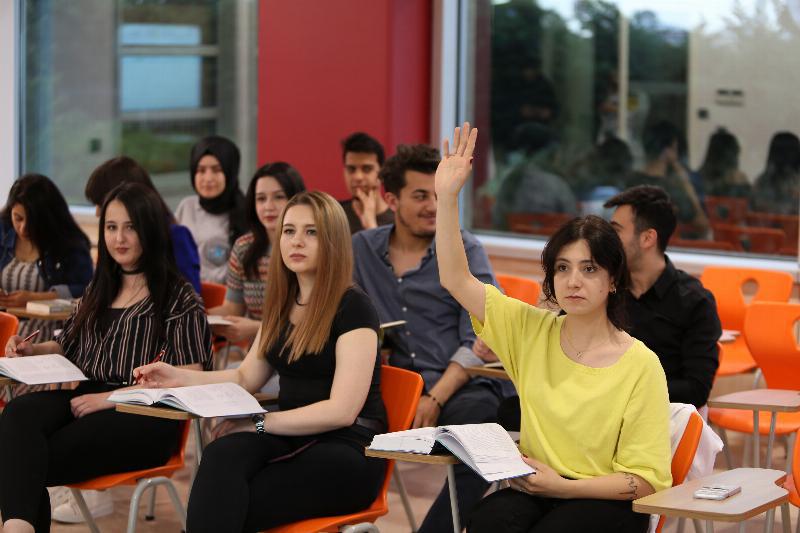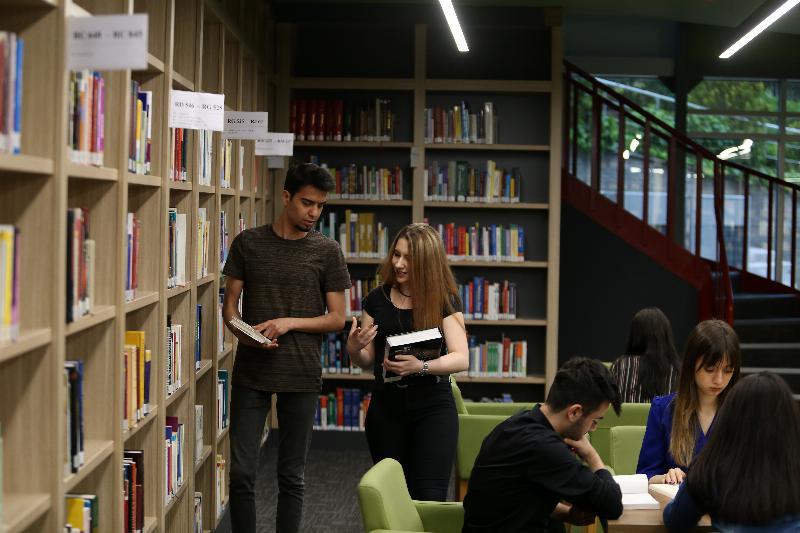
What is International Relations Master’s Program?
In this program, the political problems in today's world are examined in the context of conflict and reconciliation areas. In particular, threats and uncertainties arising in the international system are handled in a multi-dimensional manner. The internal conflicts that emerge in the Middle East after the Arab Spring and the migration movements triggered by these conflicts, as well as the increasing immigration opposition in the Western world and solutions to the impact of rising populism are sought. Under these increasingly hard conditions, the academy has a great responsibility to uncover the factors underlying the problems and to find solutions. Within this framework, the discipline of International Relations has a distinct place in contemporary issues from other fields with its political, sociological, economic and psychological approaches.
Üsküdar University International Relations Master’s Program aims to provide students the ability to research and analyze international developments on a theoretical basis as well as to improve their knowledge acquired at undergraduate level. The program offers students the opportunity to specialize in a wide range of areas, including Political Science, International Relations, International Security and Political Psychology. The aim of this program is to provide students the ability to conduct systematic research and knowledge production in the field of international relations with the field courses and academic research methods courses. In this respect, students' capacity to explain, interpret and criticize international developments can be improved by following national and international publications. Thus, our students have the chance to continue their academic careers by increasing their competencies in the Department of International Relations. In addition, our students are encouraged to do internships in ministries, public institutions, non-governmental organizations, national and international organizations in the private sector. Our students can gain career opportunities in these institutions with the academic background presented in our program.
The program offers the students the option of completing the master's program with and without thesis. The students who are educated in the thesis program are obliged to complete a comprehensive academic research and thesis work within the framework of their knowledge about basic concepts and theoretical approaches. Students completing the non-thesis program complete the Graduation Project.
Which courses are offered in the Master’s Program?

Üsküdar University International Relations Master’s Program offers courses on International Relations Theories, Turkish Foreign Policy, Regional Studies, International Migration, European Union as well as other disciplines such as Political Psychology, Cyber Security and Popular Culture. Primarily, our Research Methods in Social Sciences course focuses on examining the basic methods needed to conduct research in the field of International Relations. Instead of bringing subjective and biased approaches to political problems, the importance of bringing scientific approaches is emphasized. Starting the research, designing the research process, collecting resources, analyzing the data, making inferences and reaching the results are among the main objectives. The aim of this course is to introduce students to the theories of international relations. This course discusses the theory and practice of international relations within the framework of issues such as power state, security, conflict, cooperation and international organizations. In addition to mainstream theories such as realism, liberalism and neoliberalism, the theories of international relations such as feminism, green theory and social construction are analyzed and discussed through the examples of current events. Our Relations Theory course is complementary to each other on a practical and theoretical basis. In this context, our Regional Studies courses are planned for both fall and spring terms. The course focuses on the historical, ethnic, socio-economic characteristics of the regions such as Eurasia, Africa, Latin America and the Middle East.
Political Psychology course, which is another graduate course, aims to introduce historical and contemporary perspectives and to process the learning, methods and knowledge of the discipline of psychology in a multidisciplinary context from political behavior and personality interaction to social consciousness. Psychology treats the historical development process of the discipline according to its stages in the light of periodic field subjects. The Cyber Security course provides a strong foundation for cyber systems and information security. Cyber security, which is one of the current issues of our time, is crucial because it is an indispensable element of the future. Therefore, in this course, security and risk management, asset security, identity and access management, security assessment and testing, cryptography, penetration testing, mobile security, social engineering, legal and ethical issues, cyber-attack techniques and types of intrusion stages are discussed in a general framework. Our course focuses on the Theory and Practice of Populism and tries to explain why populism has become one of the main debates of today's political agenda. In this context, the priority of the course is to reveal the ways in which populism is defined and to provide an understanding of different theoretical approaches to populism. The controversial relationship between populism and democracy is examined by examining the ways populism is interpreted in different geographies.
Who can apply to International Relations Master’s Program?
Anyone who has a 4-year Bachelor's degree can apply to the program. If the applicants are accepted from the departments outside the fields of social sciences, the Program Coordinatorship may determine the student to take Scientific Preparation courses in order to obtain the academic infrastructure required by the graduate program.
In order to apply for the program, candidates must have at least 60 points in the Academic Personnel and Graduate Education Entrance Exam (ALES) Equal Weight score type.

What are work fields for the graduates of the International Relations Master’s Program?
Graduates of International Relations have the opportunity to work in various institutions and companies in public and private sectors. Therefore, our graduates can work at;
- Presidency, Ministry of Foreign Affairs, Ministry of Interior, EU Presidency, National Intelligence Organization, Higher Education Council in various ministries and public institutions such as institutions,
- International organizations such as the United Nations, NATO and the European Union,
- Various multinational companies,
- Non-governmental organizations,
- Autonomous public institutions such as development agencies,
- Various public and private firms in the finance and banking sector,
- Various institutions and channels in the fields of cinema and television,
- Different positions and positions in communication areas such as public relations, advertising and journalism.
Students who have obtained a master's degree from this program can also apply to doctoral programs if they wish to continue their careers in the academic field.
